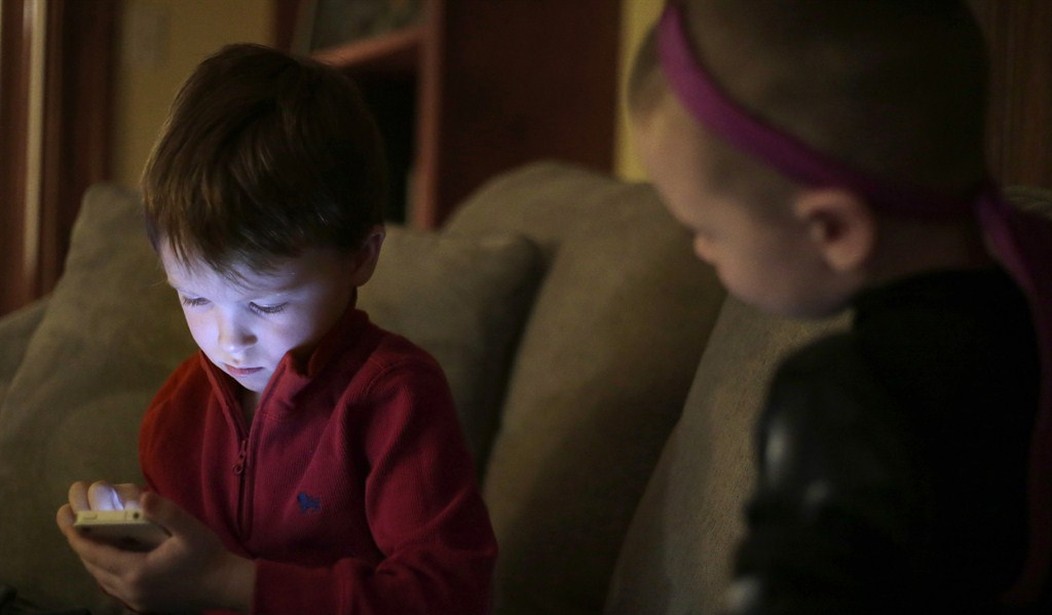Last Saturday the NY Times published a profile of author and academic Jonathan Haidt. This is just one of several pieces the Times has published about Haidt in connection with his new book "The Anxious Generation." The profile is odd because it has an overarching tone of snarky cynicism about Haidt and his work while at the same time offering very little to justify it. Frankly, it reads like it really wanted to be a hit piece (like the one the Times published about Jordan Peterson a few years ago), but in this case the author just couldn't quite pull it off. Still, the piece is still full of hints that she does not really like the person she's writing about.
Mr. Haidt often sounds like what might happen if the doomsayer Cassandra swallowed Dale Carnegie: alarmed by the catastrophes humans have cooked up, but stubbornly chipper about our capacity to undo them...
Mr. Haidt, along with his co-author, Greg Lukianoff, the head of the Foundation for Individual Rights and Expression, began to translate into magazine-cover theories the concerns about Gen Z swirling among the people who dealt with them: Young people were being insulated from tough questions, they wrote, a reality that would eventually undermine both academic and corporate institutions...
As he became the non-Fox News voice of the free speech brigade, Mr. Haidt along with his co-author also attracted critics.
One core critique was that given their identities, these two men didn’t understand the stakes of campus battles over identity politics. “Why are you making such a big deal about identity, Lukianoff and Haidt ask again and again, of people whose identities, fixed to their bodies by centuries of law and bureaucracy and custom, make them vastly more likely to be poor or raped,” the writer Moira Weigel said in a critical Guardian review. Their solutions, she went on, didn’t seem to her to be effective. “Imagine thinking that racism and sexism were just bad ideas that a good debate could conquer!”
Mr. Haidt embraced his new role as a critic of the progressive left. He is part of a social scene of New York’s professed heterodox thinkers — controversial academics, libertarian writers, culture warriors and others who share Mr. Haidt’s anti-cancel culture preoccupations.
Eventually we get to a discussion of the new book and here Haidt is portrayed as a bit overly ambitious about the changes he would like to see.
Mr. Haidt lays out an ambitious set of interventions in his new book, which include: no smartphones before high school, no social media before age 16 and no phones in schools. He hopes that legislators, educators, big tech companies and parents can bring these to fruition by — “I should pick a date,” he mused recently over lunch near N.Y.U. “Let’s say by the end of 2025.”
Despite the subtle shade directed at him, most of the readers seem to believe Haidt is on to something with his new book. This is the top comment, upvoted more than 1,800 times.
I taught high school for nineteen years. I left in 2022. Number one reason: the phones. Students enter class looking at their phones, they walk down the halls looking at their phones, and they sit around the cafeteria and campus after school looking at their phones. It’s only because the handheld digital onslaught occurred over several years that we don’t see it for what it is. Now I teach at a middle school where students never have their phones available. The result? Eye contact, good cheer, lively conversation, laughter, playfulness, and a sense of camaraderie. I left the clouds behind, and now the sun is out again. I’m happy.
Another one from a parent of 7 kids whose ages have straddled the rise of smart phones and social media.
I’ve raised 7 kids, born 1990-2008. Raising first 3 was easier. I could kick them out to play when the neighborhood still had kids running around to play with. TV was off limits during the week. No hand held video games. Flip phones, no texting plans. They are still avid readers and have degrees and good jobs.
My next 2 straddled millennial/gen z culture. I was anti socials before it was a thing. No MySpace, no Facebook. They had insta when it was a place to post inspirational quotes and photos of your lunch. That turned out to be the gateway drug. One gen z girl is sort of a social media junkie, dropped out of college and still acts like she’s 17.
My last two kids were the toughest to raise and have had the most trouble maneuvering their teen years. They need phones and computers for school. They got around parent controls. They aren’t as well adjusted, don’t read for pleasure and have not great attention spans. Social media culture is baked into kid culture.
My 18yo and we had blowups over phone use, social media, discord, bad attitudes, sneaking around. I tried the trust but verify method I used with the older kids but it no longer worked. He was required to have a Chromebook for school and a phone for activities, paying for lunch, school bell schedule, etc. it was like sending an alcoholic to school in a bar. Our 15yo has been sexually bullied online even without social media since she was 9. I don’t feel she had a proper childhood.
It’s bad out there.
Another teacher wrote:
I am a professor in a major teaching university in New York. Teaching was a mid life career change and I returned to school and obtained a graduate degree. Though I graduated only a short 10 years ago, the difference between then and now is astounding. Students were not coddled and I recall two classes where students were reduced to tears by the professor. Getting an A was an aberration. You had to work and work hard. Student evaluations were not considered. Today it is very different. Many of my students seem very fragile, and a large percentage have accommodations. Students come in with smartphones and computers, scroll during class time They are not taking notes. This is disrespectful to me and to their fellow students. Ten years ago, we had a policy of no computers, hand notes only. Classes were a lot more lively. I do fear that we are creating a very fragile generation, made even more fragile by a technology in which we are being Beta tested. But for reasons unknown, we refuse to rein in big tech, which is beyond dangerous when AI sits on the horizon.
And another describes today's kids as the "Strawberry Generation."
As a college professor I say without hesitation that the Strawberry Generation has arrived. So tender, so sensitive, so easily bruised. I don't coddle my students but not in 40 years have I heard the kind of excuses and requests that come from this current generation. Once my class begins, all digital distraction ends; they may not open phones, computers, or tablets. Notes are taken on paper but so few write that they complain this is challenging and, of course, none of them can write in cursive. I will not indulge them but neither do waste time admonishing them: it's my job to teach them to read, think, and write.
There are of course those who picked up the hints the author was dropping but beyond that they have nothing interesting to say.
The N.Y.U. professor Jonathan Haidt became a favorite in Silicon Valley...
This line tells you all you need to know.
I think concern about the impact social media and phones have on children is still a bipartisan one, but there will always be those who insist anything with any connection or support from the right can only be wrong-headed and therefore they will knee-jerk oppose it without really thinking about it.








Join the conversation as a VIP Member